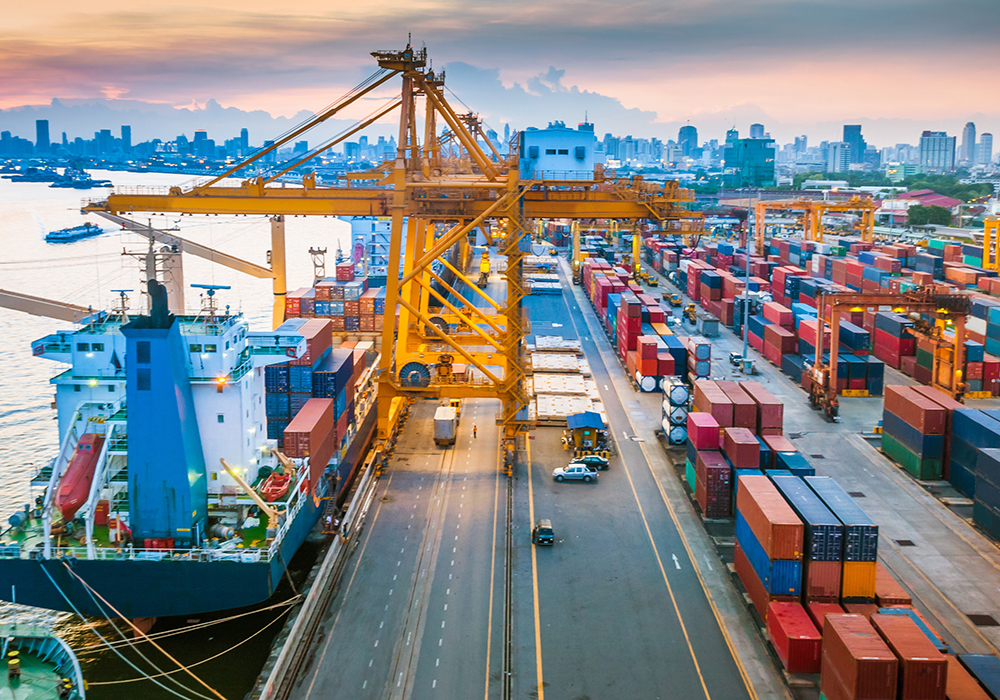A grain company that has been critical of the Canola Council of Canada was singing its praises at a recent conference.
Jean-Marc Ruest, senior vice-president of corporate affairs with Richardson International, said the federal government has an “overly simplistic” view of the grains and oilseeds sector when it comes to trade policy.
He thinks Ottawa needs to rely more heavily on industry organizations that understand the nuances of the grain trade and can provide invaluable advice on important initiatives, such as Canada’s recently unveiled Indo-Pacific Strategy.
Read Also

StatCan stands by its model-based crop forecast
Statistics Canada’s model-based production estimates are under scrutiny, but agency says it is confident in the results.
“We have to continue supporting and investing in some of the agencies that we have,” Ruest told delegates attending a recent conference organized by the Canadian Agri-Food Policy Institute, the Canadian Agri-Food Trade Organization and the Canadian Global Affairs Institute.
“I think of the work that the canola council does to promote canola and how to use the product in (those) countries.”
He also mentioned the good job Cereals Canada and the former Canadian International Grains Institute (which is now part of Cereals Canada) does in that region.
“We really have to support meaningfully, through funding and other types of support, those types of industry-led initiatives,” said Ruest.
Richardson pulled its funding for the canola council, the Flax Council of Canada and Soy Canada in 2018, saying it was not getting enough value for its $1 million annual investment in the oilseed organizations.
At the time, the grain company cited too much overlap between the three organizations and too much time and money spent on market development and agronomy work.
Canola council president Jim Everson recently stated that the door is still open for Richardson to rejoin the organization.
He noted Richardson has directly benefited from the council’s efforts to restore full market access to China.
“I would hope that that is appreciated, and the company would return to the fold,” said Everson.
Ruest was one of the featured speakers on a panel about Canada’s new Indo-Pacific strategy.
He said Canada has many competitive strengths in the region, such as its reputation for providing quality product in a reliable manner and standing behind its contractual obligations.
He also touched on the exemplary customer support provided by organizations like the canola council and Cereals Canada.
“That is very unique,” said Ruest.
“It is valued and something that really distinguishes us from other countries.”
But he noted that some of Canada’s traditional strengths are “slowly eroding.” Canada is becoming a less reliable supplier because of faltering rail service caused by strikes and blockades and failing grain transportation infrastructure.
“Apart from the lack of investment in infrastructure, we have a growing problem with local interests preventing us from being able to actually operate existing infrastructure,” he said.
Complaints about noise and dust pollution and other concerns are causing problems at the Port of Vancouver, the Port of Hamilton, the Port of Quebec and the Port of Sorel.
“We’re not using our facilities to their full extent,” said Ruest.
“We’ve got to somehow get that straightened out.”
Moderator Meredith Lilly, associate professor at Carleton University, said Ottawa appears to be attempting to pivot away from the Chinese market in its new strategy.
“The government has sent signals that if you’re going to continue to operate in China, you’re a little bit on your own,” she said.
She asked the panelists how they felt about that stance.
Trevor Sears, president of Canada Pork, said China has a tendency to weaponize trade but it is hard to diversify away from that market.
“China buys parts of the hog that nobody else in the world buys and they pay a good price for it,” he said.
Ruest echoed that sentiment.
“It is too big of a market to ignore and to say we won’t be doing any more business there,” he said.
Ruest doesn’t believe the federal government should be “wiping their hands” of the China problem because Canada also needs that market.
Instead, he believes Canada should plan a common strategy with like-minded nations.
“China has been allowed to do what it does because it plays off one country against another,” said Ruest.
“Maybe it’s time we start thinking about how an attack on one (country) constitutes an attack on our allies from a trading perspective.”
Sears wants to see Canada adopt a different approach to negotiating free trade agreements in the region.
He noted that when the Canada-European Union Comprehensive Economic and Trade Agreement was signed, Canada was exporting more to the EU than it was importing. Since then, Canada’s exports have stagnated while the EU’s exports have “gone through the roof.”
“The reason is non-tariff trade barriers,” he said.
“When these deals are being negotiated you need the right people in the room to understand what these deals are actually saying and what might be swept under (the rug) as far as non-tariff trade barriers.”
Ruest said there needs to be a more expedient way of dealing with those sanitary and phytosanitary barriers when they arise.
“Having a multi-year process to determine that the allegation of a presence of a pest in a cargo was unfounded just doesn’t make any sense,” he said.
Ruest said another concern in the region is the risk of payment default, which is “very, very significant” in some importing nations.
A typical grain ship carries 50,000 to 60,000 tonnes of cargo worth $35 to $50 million, so there are huge consequences if there is a bad letter of credit or something along those lines.
The way companies deal with that is by inserting risk premiums into contracts, which elevates the price in price-sensitive markets.
He believes part of the focus of the new Indo-Pacific strategy should be to find ways to reduce those risks and lower the price of imported food.


















